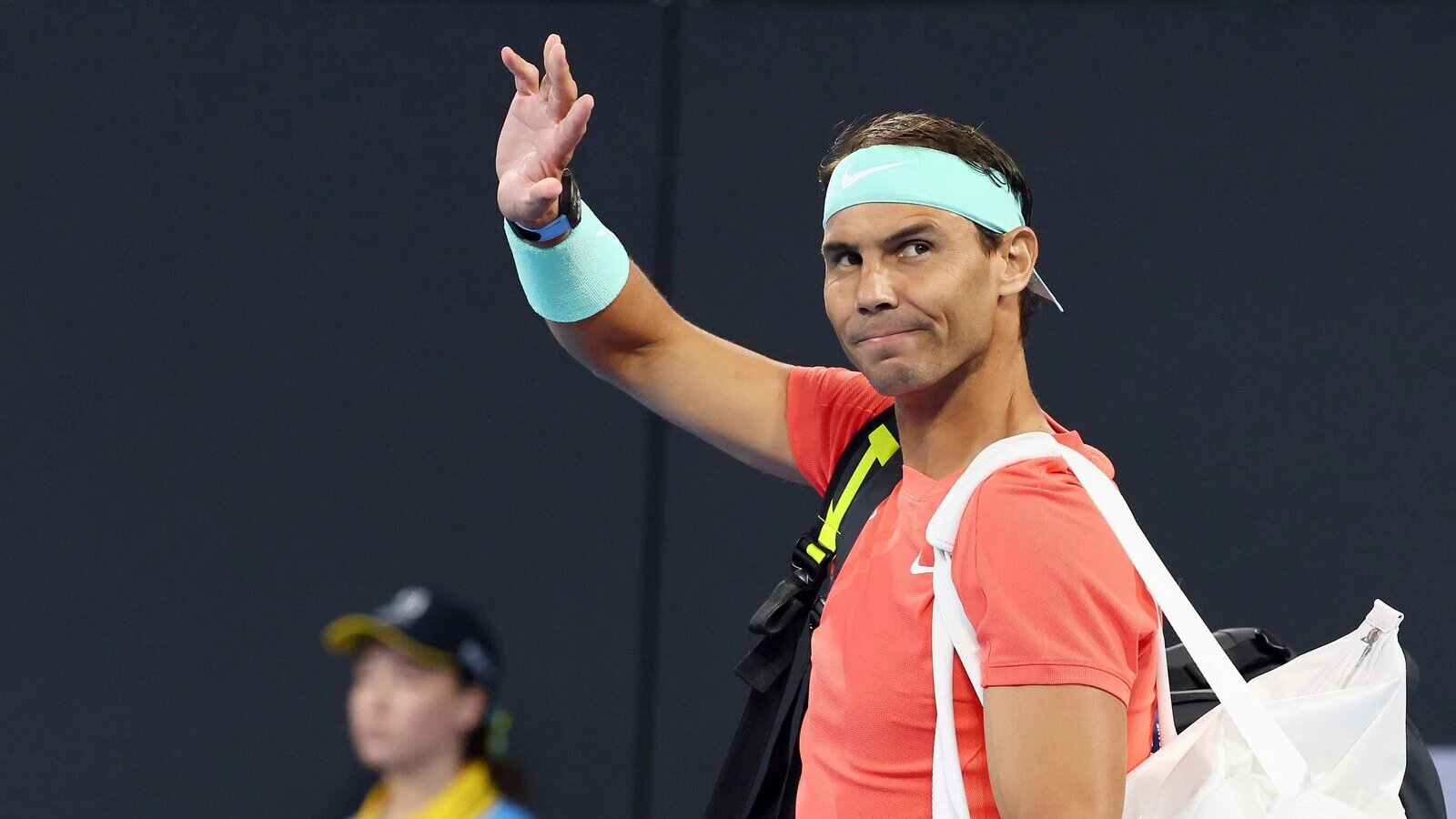When Rafael Nadal’s Paris Games — and his Olympic career — came to an end with a doubles loss in a stadium essential to his reputation since it hosts the French Open, which he has won a record 14 times, he soaked up the adulation as he exited the red clay.

Was Nadal’s 6-2, 6-4 loss to the fourth-seeded American combo of Austin Krajicek and Rajeev Ram, along with Carlos Alcaraz, his final Roland Garros match?
Let’s let Nadal respond: “Maybe,” he said later in the evening. “I don’t know.”
Was this his final match anywhere? There is no way to know for sure if he is or is not.
After gathering his equipment from the sideline, the 38-year-old Spaniard gazed around the venue that had meant so much to him during his tennis career and waved to the crowd, who were bidding him farewell with the latest in a string of standing ovations during these Olympics. Nadal hesitated before walking through the doorway to the locker room, and Alcaraz placed his right hand on his partner’s left shoulder.
“If that’s the last time (here) for me, it’s an unforgettable feeling and emotions; they give me love and support every single second that I’ve been on court,” Nadal said of the fans, who shouted, yelled, and sung for him during the quarterfinal encounter.
“It’s very special to feel that, especially in this environment. So I can’t thank them all enough for giving me the sensations I have within myself and the emotions they elicit,” he said. “I don’t know what’s going to happen in the future, but if that’s the last time, I enjoyed it.”
The match was played at Court Philippe Chatrier, the site of the French Open finals, where he won more than half of his 22 Grand Slam titles.
“For me,” added Ram, “Rafa at Roland Garros is the ultimate.”
Nadal has not announced his retirement plans, but given his age and recent history of problems, including hip surgery in 2023, it appears safe to assume he does not have much left in him. He indicated Wednesday that he doubts he’ll play in the U.S. Open, which begins in late August.
“I need some time (to decide), but for me, (it) looks difficult,” remarked Rafael Nadal.
He won gold medals for Spain in singles in Beijing (2008) and doubles in Rio de Janeiro (2016). This time, opponent Novak Djokovic upset him in the singles on Monday.
When Krajiceck served out the victory, Alcaraz and Nadal hugged on one side of the net, while the Americans hugged on the other.
“It was an incredible experience for me.” “It’s something I’ll never forget, playing on the same side of the net as Rafa,” Alcaraz remarked. “I tried to enjoy every single second that we played together.”
Nadal and Alcaraz are not frequent doubles players, and this was their first event together.
They do, however, boast a total of 26 Grand Slam singles titles. Alcaraz has four, including this year’s French Open in June and Wimbledon in July.
“I’m a little disappointed right now,” Alcaraz admitted. “Clearly, we wanted to keep going. We wanted to win so we could fight for a medal.”
Ram and Krajicek are significantly more skilled at doubles. Both have been ranked number one. Ram has won four Grand Slam men’s doubles titles with another partner, while Krajicek has one.
All four players on the court could be heard speaking over the hushed atmosphere that filled the fans shortly before the game began. At times, the Americans’ cries of “You! You!” could be heard plainly.
After points, particularly those won by Nadal and Alcaraz, it became loud under the retractable roof, which was closed due to rain. Very loud. There were cries of “Ra-fa!” and screams for his country, “Es-pa-ña!” which were periodically responded by somewhat less boisterous yells of “U-S-A!”
Nadal is the most popular player to have ever participated at Roland Garros. He is so popular that he is commemorated by a steel statue outside Chatrier.
In that arena, he received his 14 French Open championships. And it was in that arena that he fell to rival Djokovic on Monday.
No one knows if he will ever return and play there again. If he does not return, it is difficult to say who will be sadder: Nadal or his legions of admirers.
“At this stage of my career, I play for feelings,” remarked the player. “I play for emotions, more than for results.”